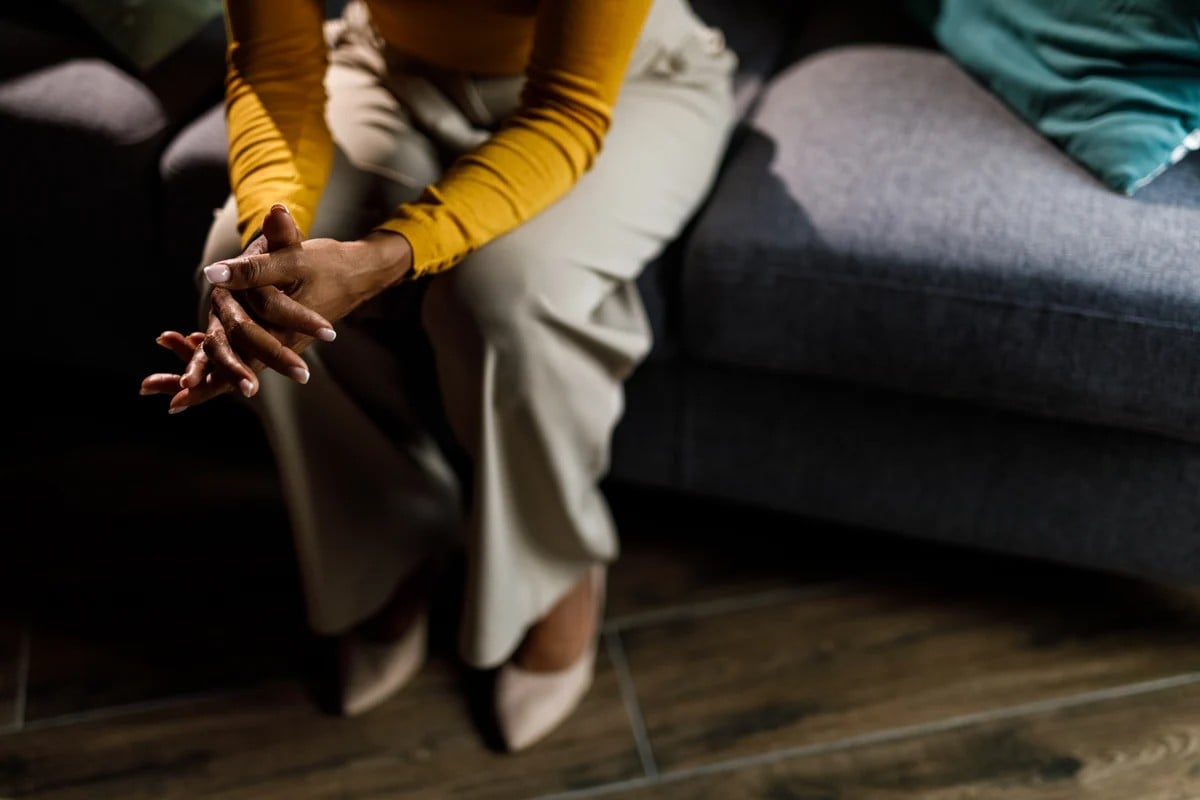
Content warning: this article discusses childhood sexual abuse and suicide.
Growing up, Hope* was exposed to domestic abuse on a daily basis. Only, at the time, she didn't know it.
Her mother was expected to stay at home, look after the children, do the housework and take care of the gardening. She wasn't allowed to work — that was Hope's father's role. Her mother had to do everything else.
"She had to ask him for money and write down everything she bought. He was quite controlling. I didn't even recognise it as domestic abuse. Back then, I thought it was normal. It was the '80s, after all.
"He was verbally and financially abusive, and on occasion, physically abusive. My mum wanted to leave him when I was a teenager, but she wasn't allowed to. She didn't know she could leave or that she had rights, like being able to keep half the house. He kept her trapped."
Watch: 60-Second Breathing Exercise for Anxiety. Article continues after the video.
Instead, her mother turned to alcohol, and took her frustrations out on Hope.
"She had wanted one son and one daughter but ended up with two daughters. I was the second one, and it was made very clear to me that she didn't want me.





























































































